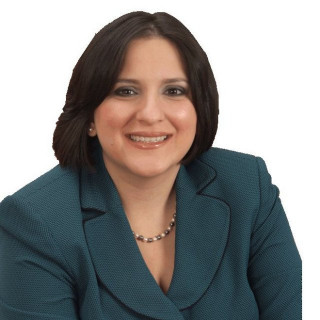Free Consultation: (954) 300-3915Tap to Call This Lawyer
Badges
Claimed Lawyer ProfileQ&A
Biography
Born and Raised in South Florida, Attorney Maite L. Diaz has been helping South Floridians regain financial stability via fresh start Chapter 7 and Chapter 13 reorganization bankruptcies for over 18 years. Our services have helped clients to save their homes from foreclosure, prevent repossessions, stop wage garnishments and harassing creditor calls. Our personalized one to one service can help you find the path back to success by helping you deal with your bad debt. We take pride in listening to our clients' needs and treating them with respect. Call today to schedule your free initial bankruptcy consultation. Hablamos Español.
Education
- Florida International University College of Law
- J.D. | Law
- -
-

- Florida International University
- B.S. | Social Studies Education
- -
-

Professional Associations
- Florida State Bar # 25880
- Member
- - Current
-

Jurisdictions Admitted to Practice
- Florida
-

Fees
-
Free Consultation
Free Initial Consultation for Bankruptcy and Foreclosure Defense Cases - Credit Cards Accepted
Practice Areas
- Bankruptcy
- Chapter 11 Bankruptcy, Chapter 13 Bankruptcy, Chapter 7 Bankruptcy, Debt Relief
- Real Estate Law
- Commercial Real Estate, Condominiums, Easements, Eminent Domain, Homeowners Association, Land Use & Zoning, Mortgages, Neighbor Disputes, Residential Real Estate, Water Law
Languages
- Spanish: Spoken, Written
Legal Answers
- Q. Am I judgement proof for credit card debt if I own a home jointly with my son?
- A: Are You Judgment Proof?
Yes, you are likely judgment proof.
“Judgment proof” means that even if a creditor sues you and wins a judgment, they won’t be able to collect because your income and assets are protected under the law.
Here’s why:
Your income is protected.
Social Security income and most pensions are exempt from creditor garnishment under federal and Florida law. This means that even if a creditor gets a judgment, they cannot take your Social Security or pension income, especially if it is directly deposited into a bank account and not comingled with non-exempt funds.
Your home is likely protected under Florida’s Homestead Exemption.
Florida has one of the most ... Read More
- Q. HOA fee increase and missed payments in Florida condo
- A: If your father is behind on HOA (Homeowners Association) fees for his condo in a 55+ community in Florida, it's very important to act quickly to avoid serious consequences. Even though the building manager has only called you informally so far, Florida law allows HOAs to file a lien against the property for unpaid assessments—and eventually foreclose if the debt remains unpaid.
Consequences of unpaid HOA fees can include:
A lien placed on the condo.
Foreclosure action, even if the mortgage is current.
Additional late fees, interest, attorney’s fees, and collection costs being added to the balance.
Since your father has already missed four payments and is experiencing financial ... Read More
- Q. Is it legal for the HOA to block my account access due to unpaid assessments?
- A: Yes, it is legal for an HOA to turn your account over for collections if you are in default. When that takes place, the property management company typically avoids speaking to you directly and refers you to the attorney handling the matter. It may be possible to work out a payment arrangement with the association via the attorney but remember, the association's attorney does not represent you and is legally required to act in the association's best interest, not yours. You might want to consult legal counsel of your own to help with the negotiations. If all else fails, Chapter 13 bankruptcy may be a way to prevent a possible HOA foreclosure action and divide the money you are behind ... Read More
Social Media
Websites & Blogs
Contact & Map


